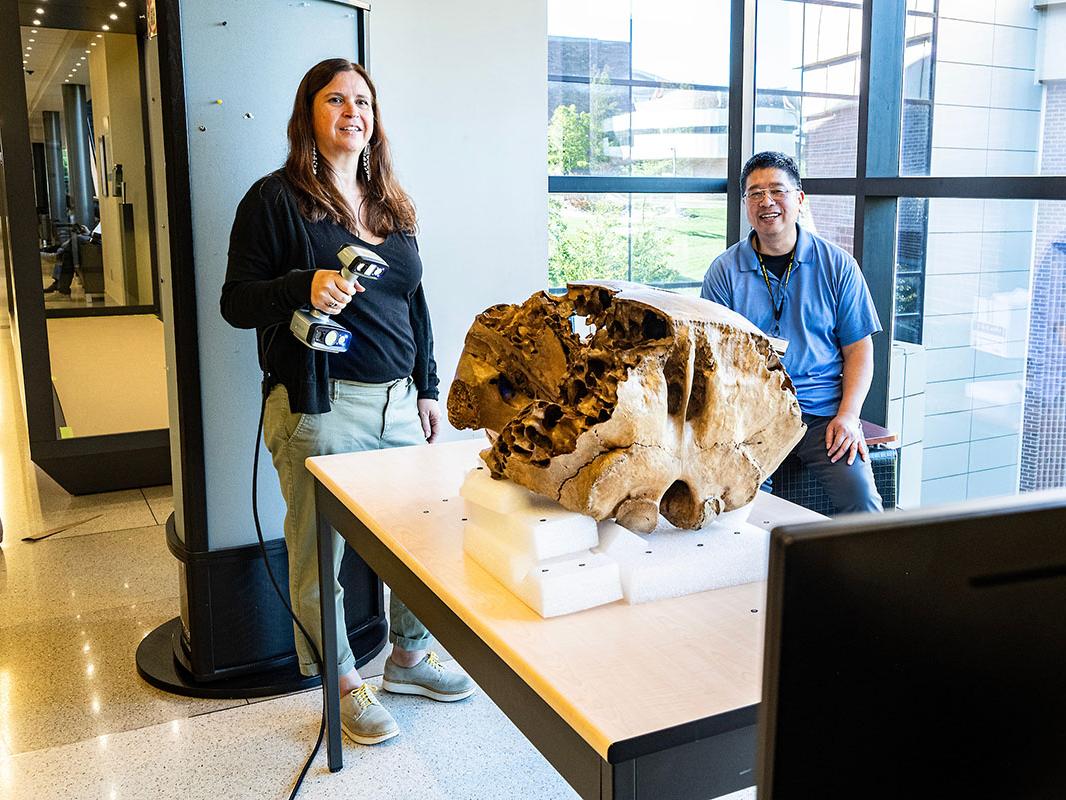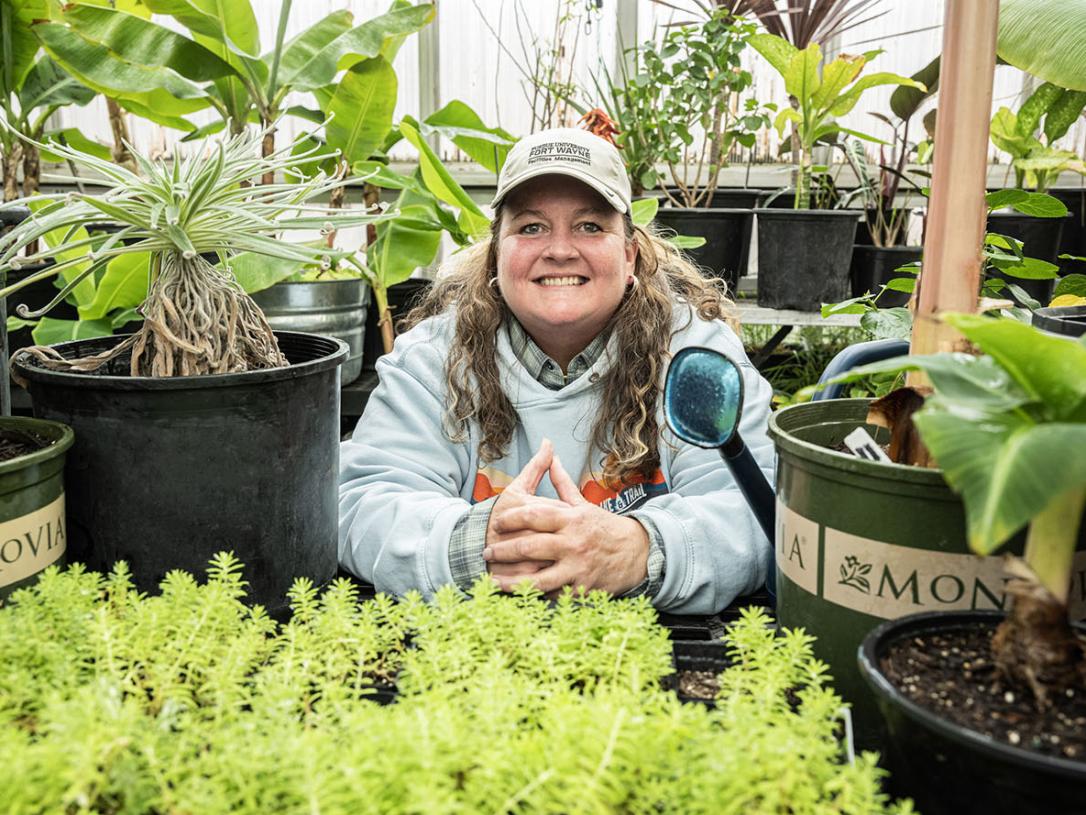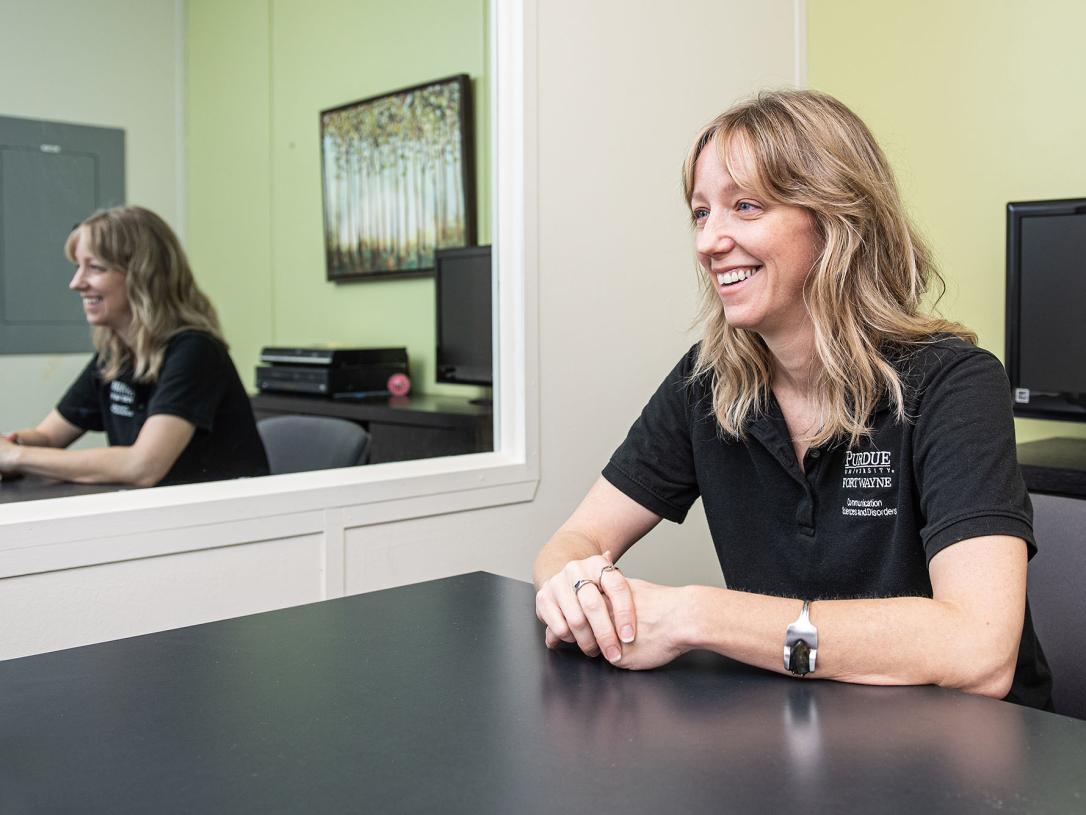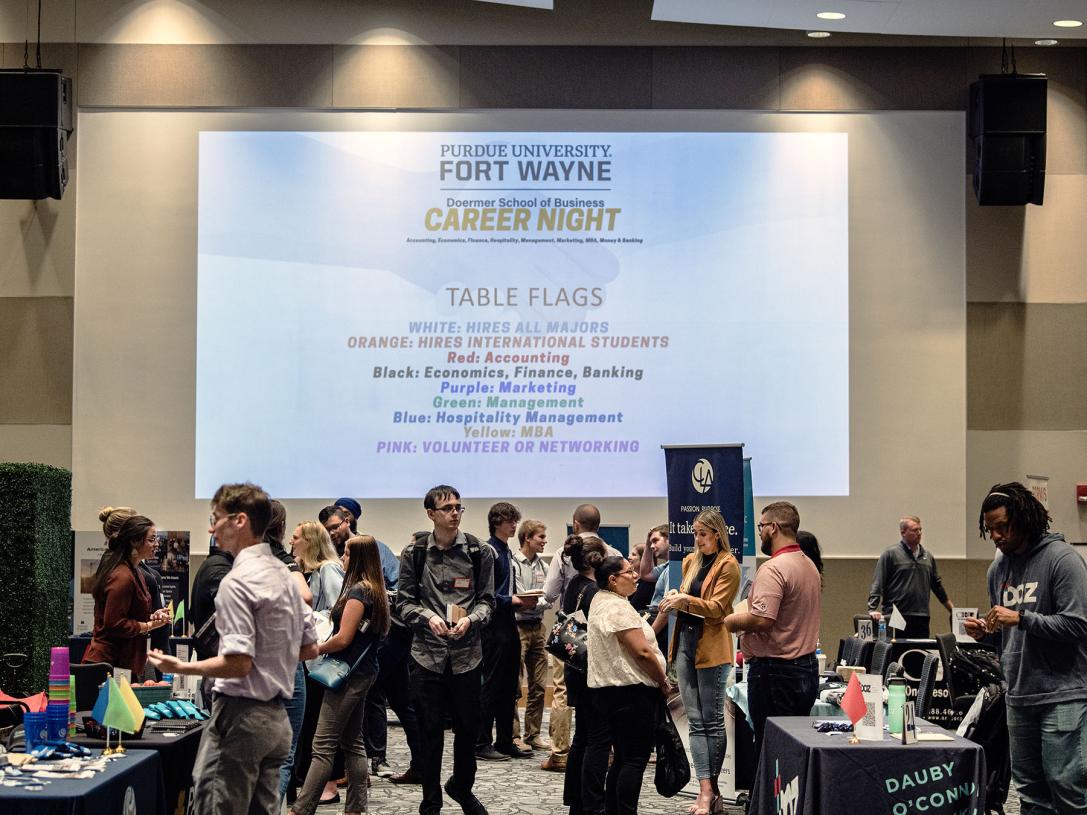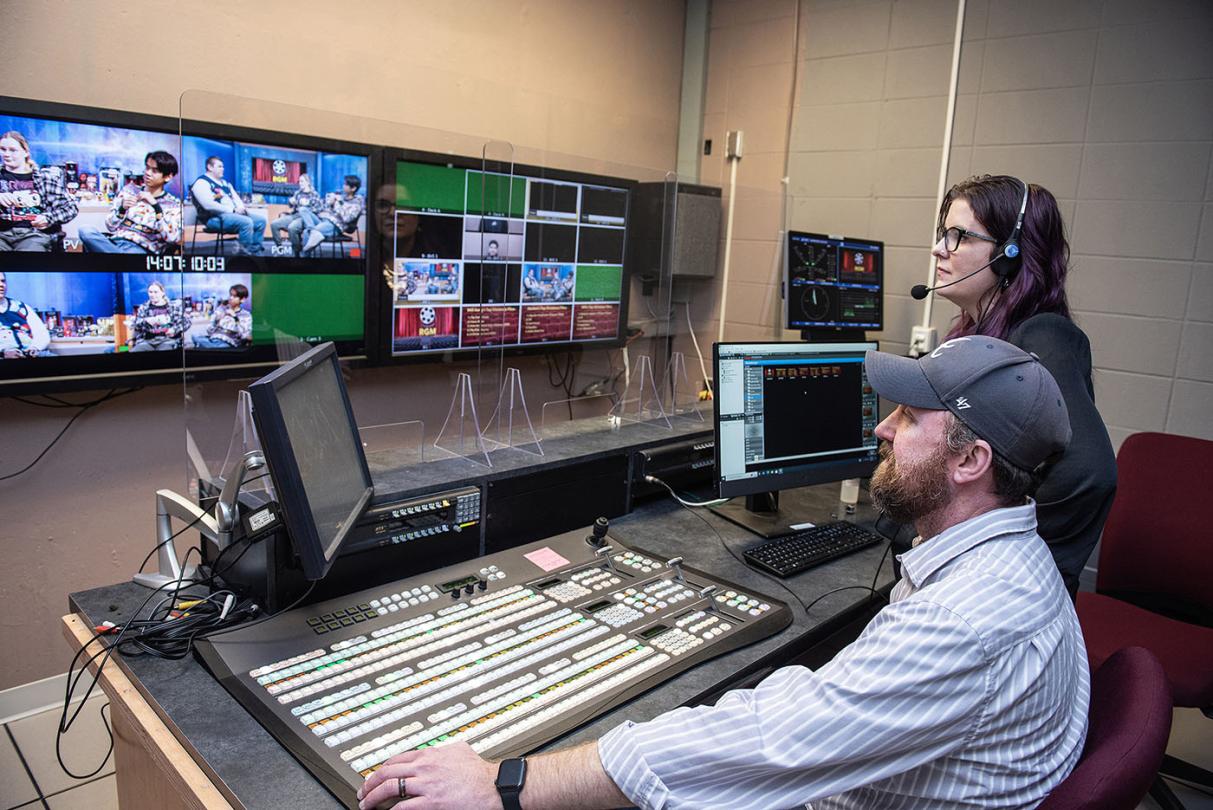
College TV Fort Wayne has solid reputation for developing talent
By Blake Sebring
January 23, 2024
Maybe the hardest part of teaching his intro to TV production class is that Art Herbig has to lower the students’ expectations just a bit before he can start raising them.
“You made a 10-minute movie? Wow, that’s amazing,” the Purdue University Fort Wayne director for the Center for Collaborative Media said. “What I want is three minutes of quality. I’m not going to be grading you based on length. Three good minutes is way greater than 10.”
And Herbig has a pretty good track record of teaching talented students who are now spread throughout the area at TV stations and advertising agencies. Others are working across the country in TV and movie production. They all started by earning a television production minor, most majoring in communication.
“There are so many key classes that I took during my time here that really prepared me for my work in a newsroom,” said Kayla Stewart, 21Alive’s morning news anchor. “All of those classes helped, and having classroom experience and then the real-world experience really helped me.”
Located in Helmke Library's basement, College TV Fort Wayne is an incubator for students developing their talents behind and in front of the camera.
Herbig, producer Alix Watson, and Will Beamon, B.A. ’19, the production manager, encourage students to develop their all-around skills, which remains key as the number of jobs in the industry continues to shrink. The more versatile an applicant’s skills, the more valuable they are. Herbig tells a story of Stewart as an intern showing some full-time reporters how to work a camera. The general manager of the station saw this and gave her a full-time job while she was still in school.
“For me, it’s really fulfilling to see from when they first get hired here at the station to when they graduate and the progression they have made,” Beamon said. “That’s what keeps me coming back here every day. It’s really cool to see we have students working at this station, or with this sports team, or in New York or Chicago. I get to live a little vicariously through them knowing I gave them a helping hand.”
Those students have produced more than 400 videos on the station’s YouTube channel. There are three full-time staff and nine part-time student workers.
Junior Zaid Ali wanted to attend a larger university and major in film studies but ended up in Fort Wayne where he found more opportunity. He’s already been part of producing a six-episode sitcom called “Nothing Happens in Mercy,” which follows a group of journalism students who discover something odd about a small Indiana town. Ali is also working on a pair of three-minute horror films.
“When I was starting out, I was very afraid, and when you have that you are hesitant to start,” Ali said. “Then you do start to learn, and suddenly you can make some really cool stuff. This semester, I’m taking the most load I have so far, and I’m stressed, but at the same time I’m enjoying it because I’m figuring out this is something I can do.”
Ali’s eventual goal is to work in film or television production and hopes to be part of a widely-produced movie.
One of the tools students get to work with is a fully functional studio, including a green screen, which could be used for a news broadcast or a talk show. Several editing bays can also produce podcasts. If students can dream it, Herbig and his staff can probably teach them how to make it happen.
“We’ve got every opportunity here,” Herbig said. “If you want to make movies, do journalism, learn to rig a light kit, it’s all here. Whatever scale you are thinking, we can scale it up. We want them to have the skills to know how to work on the small scale because it trains them to work in a market like Fort Wayne.”
Herbig doesn't want to limit his students, but does want them to focus on the basics before he helps them find as many opportunities as possible.
“When you come in with that passion, I can help you get there,” Herbig said. “My focus with the students is trying to find their creative direction. I want them to tell their story and get it out there. We try to give them as many creative outlets as possible to use what we have.”
